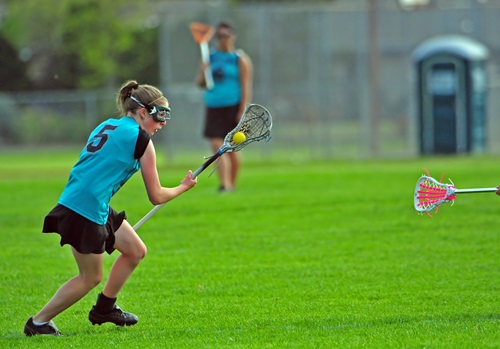
There is little debate that there are mental, emotional, social and physical benefits for children who participate in organized sports, and the value of youth sports participation often resonates well into adulthood. But an increasingly prevalent question involves whether “playing up,” or lacing a young athlete in an age group above his or her actual age, is advantageous or detrimental to the child’s overall development (both as an athlete and as an individual). And it is making waves at the sports tourism level as well.
In general, the choice of whether or not to allow youth athletes play up is determined by the sports organization itself, which might be a league, a team or other entity. Some states have rules or laws governing the practice; Kentucky, for example, says that seventh- and eighth-graders may participate in high school teams, with the exception of football and soccer.
The governing body for the sport being played may also have a say in the practice, meaning it is incumbent upon coaches, managers and other officials to ascertain whether the practice is going on.
“Although there are no hard and fast rules on playing up, the important thing to decide is what is best for your child given his or her unique ability, personality, age, sex, sport, and program,” posits The Sports Parent Network. “In many programs there are opportunities for a child to play ‘up’ with older children. In club sports this might mean playing with an older age group. In school sports this might mean playing varsity with older kids rather than sub-varsity with age-level peers. Many kids have been helped by playing up, but as many or more have been hurt by the experience. Therefore, the decision to play up should not be an automatic ‘yes.’”
The Sports Parent Network suggests taking some key factors into account when making a decision. These include whether the child really wants to play up, will they have fun doing so, have they mastered the fundamental skills of the sport, are they physically and mentally ready, and whether they already dominate most age-level peers.
Other considerations are whether the coach or program thinks it’s a good idea, and beyond that, if the coach has a plan for integrating the child into a group of older players, if there are opportunities to practice leadership, if the child will be given a reasonable amount of playing time, will the child be able to keep up academically (due to more practice time, travel time and possible fatigue), and if the family can support the commitment in terms of time and money.
“There are popular beliefs that playing up athletes will allow them to advance in comparison to their peers of the same age. However, not everyone agrees. Others have said that playing up could expose younger athletes to an intense sporting environment too early and potentially hinder their development,” says Bradley Busch, a psychologist and expert on cognitive science in education, writing for InnerDrive. He notes that the main negatives are perceptions of challenge and perceptions of progress.
 Regarding perceptions of challenge, Busch states, “When playing up, athletes are exposed to a range of challenges and difficulties, making the experience harder for them. The areas they reported as being the most challenging to cope with were intensity and fitting in.”
Regarding perceptions of challenge, Busch states, “When playing up, athletes are exposed to a range of challenges and difficulties, making the experience harder for them. The areas they reported as being the most challenging to cope with were intensity and fitting in.”
In addressing perceptions of progress, he believes that playing with older peers (who tend to be bigger, stronger and more skilled) is more intense than playing with kids of the same age.
“These differences could potentially cause your players to make mistakes in front of older athletes in training, which could lower their confidence. These mistakes could lead younger athletes to develop a fear of failure, which could ultimately hinder their performance.” He also notes that injury and exhaustion due to a drastic change in intensity is also a danger.
On the flip side, Busch also concedes that playing up allows young athletes to grow and develop in a way that is just not possible with same-aged peers. “They are introduced to new skills and challenges that help them to enhance not only their physical abilities, but their social abilities, too.”
A recent article appearing in USA Hockey Magazine contends that for most kids, the impact of playing up can have a negative effect in the long run. “Sports are about long-term development. There is no reason to rush the process,” states Ryan Hardy, the director of player personnel for USA Hockey’s National Team Development Program. “There is a lot of value in taking your time rather than rushing to play up a level.”
Hardy believes the best situation for kids is to stay within their age group, both for on-ice and off-the-ice purposes. “I prefer it because it not only helps them develop better from a skill standpoint, but it benefits them socially and emotionally,” he says. “Sometimes being around older kids, they hear or learn things they don’t need to at their age. If parents are going to play their child up a level, they need to make sure the situation is right for the child.”
Michael Herbert, Director of Physical Education, National Academy of Athletics, concurs. “I have always been a proponent of letting kids stay in their own age group so they can enjoy the experience of playing with their friends. Most kids would rather stay with their peer group where there is better synergy with behavior, maturity level and closeness with one another,” he says. “Just because a child is a standout physical performer doesn’t mean they are any further along in confidence, self-esteem or interpersonal skills.”
“For the vast majority of kids, playing against other kids their own age and skill level makes the most sense,” according to Dr. Chris Stankovich, an expert in sport performance science writing for The Columbus Dispatch. “In fact, kids are more likely to get ‘in the zone’ when they are fairly matched against similarly talented kids and teams. Unfortunately, when some kids play up a league, they begin to experience self-doubt, which results in increased anxiety and poor athletic experiences.”
Stankovich recommends that parents think about sports the same way they do about academics. “Would your child be better off with honors or AP classes, or is she better suited for the standard educational curriculum offered at her school? The pros and cons are similar to sports in many ways, as not all kids will benefit by getting in over their heads (in school or in sports). Make a decision that's best for your family, and be sure to revisit the decision annually in order for the best results to occur.”
Stephen Norris, a specialist in long-term athletic development who has also served as the vice president of the Canadian Winter Sport Institute, echoes most experts when he suggests that the decision to play up be made on a case-by-case basis, and that the best interest of the child should be paramount.
“There needs to be a very good reason for wanting them to play up. It’s important to look at the long-term effects of it. I have nothing against children playing up a level, but the decision can’t be about the competitive outcome, which is what so many parents are focused on,” Norris says. “We tend to throw out the rulebook when it comes to common sense in sports.”

